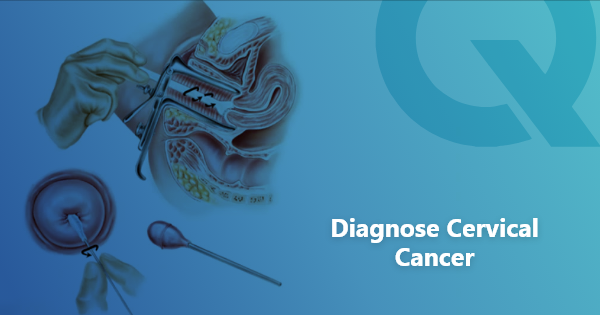Cervical cancer is one of the most common gynecologic cancers among women in developing countries. Cervix is the lower part of the uterus that connects the uterus with the vagina. Over 85 per cent of the deaths due to cervical cancer have been witnessed in developing, low and middle income countries. In India over 1.2 lakh women are diagnosed with this disease every year and the mortality rate is over 50 per cent. Cervical cancer is the second most common cancer in Indian women in the age range of 15 to 44 years. Even the age standardized incidences of cervical cancer in India are the highest in South Asia, as compared to other developing countries like Bangladesh, Sri Lanka and Iran.
Cervical cancers are often related to an underlying infection with the human papilloma virus (HPV), which is usually sexually transmitted. HPV can cause pre-cancerous changes in the cervical cells that ultimately lead to the development of cervical cancer. HPV vaccine if given in young age plays an important role in protection against HPV infection and prevention of cervical cancer. While cervical cancer can be a slowly developing disease, if not detected early, it may spread to other parts of the body like abdomen, liver, bladder, or lungs.
Cervical cancers are largely of two types – squamous cell carcinomas and adenocarcinomas, with 80 to 90 per cent cases being the former. The disease mostly remains undetected without any symptoms in the early stage and the primary signs might take years to develop. Some of the common signs and symptoms of stage 1 cervical cancer include post coital bleeding i.e. vaginal bleeding after intercourse, irregular or breakthrough bleeding between periods or post menopausal bleed and foul smelling vaginal discharge or pain during intercourse. If the cancer spreads to other nearby tissues symptoms can be painful urination, diarrhea, bleeding from the rectum, fatigue, weight loss, loss of appetite, back pain, swelling of legs, pelvic or abdominal pain, etc.
Cervical cancer being a slowly developing disease gradually brings in abnormal and disordered growth and differentiation in the cervical cells – which may go away, stay the same or turn into cancer. Some of the common tests that gynecologic oncology practitioners perform are pap smear or pap test (examination of the scrapings of cells of the cervix to detect abnormalities), colposcopy (using low powered microscope to locate abnormalities and biopsy the area) and biopsy (sampling potentially affected tissues with a needle).
Gynecological screening with the pap test is generally effective in detecting most cases of cervical cancers by examining signs of pre-cancer and irregularities. Other tests like HPV molecular testing are performed to specifically check the cervical cells for HPV virus. For a detailed examination of suspected cancer, biopsy is performed by taking samples of tissue through various techniques like punch biopsy or endocervical curettage. Other tests performed to detect whether the disease has spread to other organs of the body are liver and kidney function studies, blood and urine tests and radiological evaluation of the bladder, rectum, bowels and abdominal cavity.
Like most other cancers, Cervical cancer is also divided into four stages – stage I, stage II, stage III and stage IV. Stage I mostly remain undetected without symptoms and means that the cancer is only in the cervix and have not spread to other parts. At stage II the infection has spread beyond the cervix and uterus but hasn’t yet spread to the pelvic wall. The cancer can spread to the lower part of the vagina and pelvic wall at stage III and finally at stage IV it infiltrates the bladder, rectum or other parts of the body like your bones or lungs.
Increasing awareness about the symptoms and signs of cervical cancer, early detection through pap smear screening and molecular tests will go a long way in reducing the morbidity and mortality from this dreaded disease. Hence it is vital for all of us to be well informed and consult gynecologists for appropriate screening and disease prevention.





